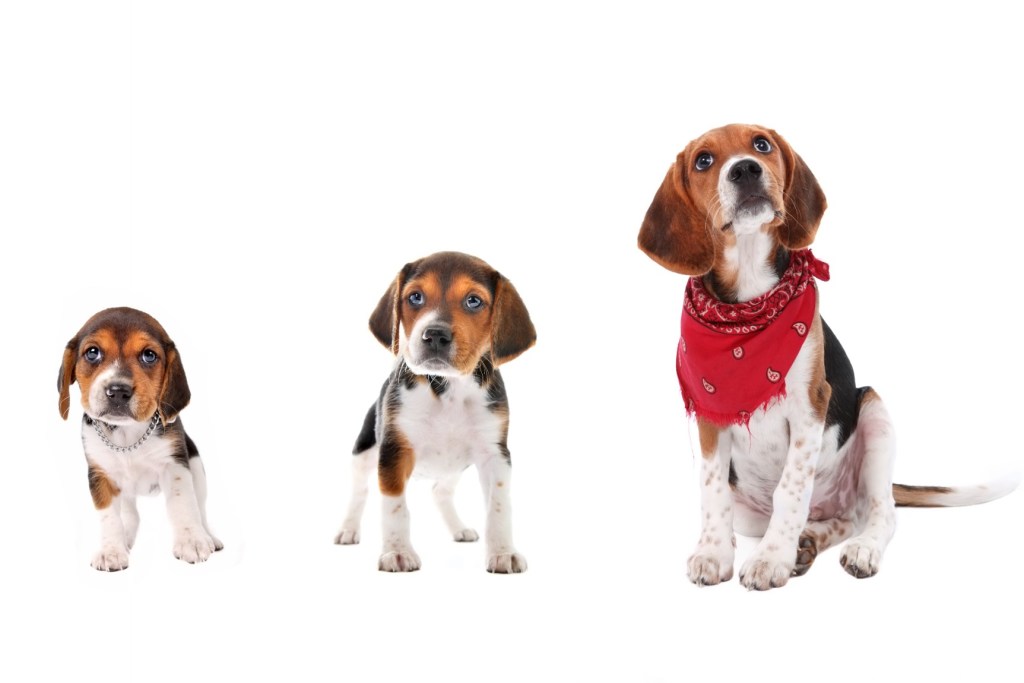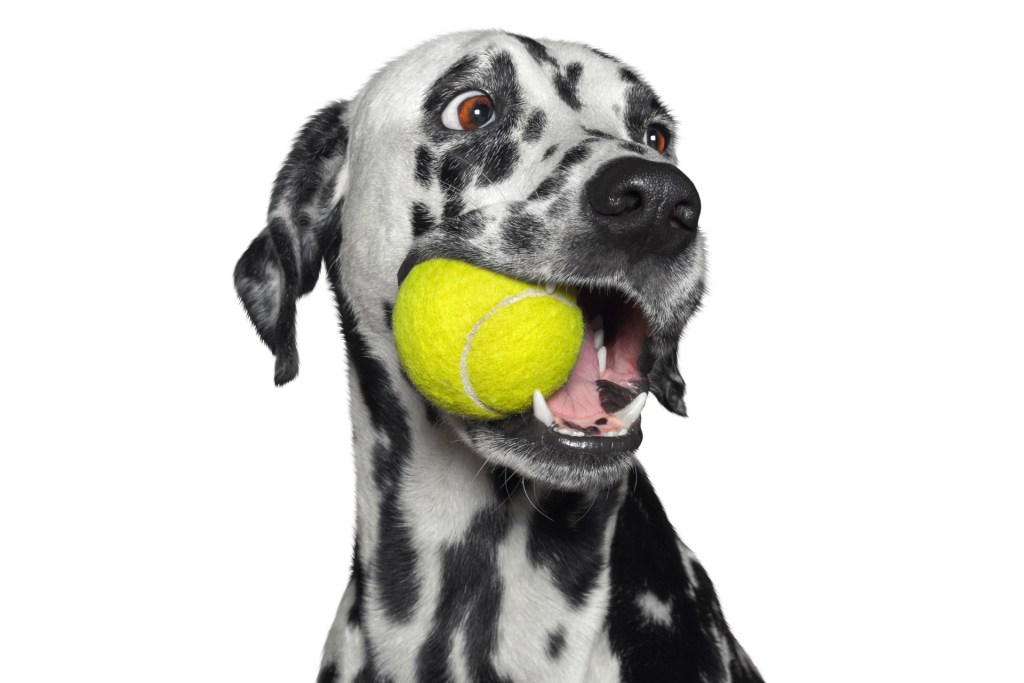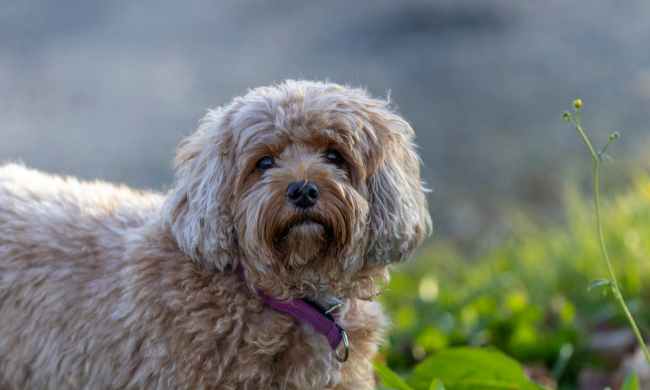Ask any dog parent, and they’ll tell you that puppies grow into adulthood in the blink of an eye. And, while this is true, a dog’s transition to adulthood is not so straightforward. Understanding your furry baby’s growth process is important because it helps you meet their needs. The key to providing the ideal lifestyle and diet for your dog and help them develop into a healthy pet is to know their maturity level.
And even though certain breeds might exhibit puppy behavior well into adulthood, there is still a point when your furry friend is technically no longer a puppy.

When is a dog no longer a puppy?
Each stage in your dog’s life is important to their overall growth and requires different care from you. Much like humans, a dog’s development breaks down into several stages:
- Sexual maturity
- Physical maturity
- Emotional maturity
As if that weren’t enough of a curveball, you should also know that some of these stages are different depending on your dog’s breed and individual needs. The great news is that as your dog grows, you’ll get to know them better than anyone else. This will make it easy for you to understand where they are in terms of development and help them every step of the way.
Sexual maturity
By 6 months old, most dogs are able to reproduce. This is known as sexual maturity. While your 6-month-old pooch is physically and emotionally still a pup, this is the time to have your dog spayed or neutered if you’d like to avoid unwanted pregnancies. Yes — pup parenthood just got real!
But reproduction isn’t the only issue here. If you want to prevent behaviors such as roaming or marking, then 6 months of age is the best time to fix your pup. At this point, their sex organs are fully developed and can undergo sterilization.
Physical maturity
Physical maturity is more of a gray area, because it depends on your dog’s breed and size. It’s also independent of behavioral maturity. So, at this point, you may find that your dog is fully grown but still behaves like a pup. They also still need a high number of calories and a lot of daily exercise to stay happy. Welcome to the teenage years!
If your puppy reminds you of yourself as an adolescent, then you should know this can be a challenging time. Just be patient and consistent. With clear boundaries and expectations, your furry friend will soon grow into a mature adult.
Here are the general guidelines for your dog’s physical maturity, based on their breed and expected weight:
- Small breeds up to 30 pounds mature between 10 and 12 months of age.
- Medium breeds up to 80 pounds reach maturity between 12 and 16 months.
- Large breeds that weigh over 80 pounds may not reach maturity until they’re 2 years old.
Emotional maturity
Once your pup reaches emotional maturity, they’re a full-fledged dog. This stage in their life is very clear and you’ll quickly notice the difference. Your pooch will stop acting like a puppy or teen. By their second year, your dog will be much more focused and settled down.
Just like with humans, this is a point in your pooch’s life when hormones even out. They listen and respond better and even understand social cues that went over their head before. At this point, you can say that your puppy is now a dog.

Signs your puppy is aging
Your puppy is losing baby teeth. According to the Veterinary Centers of America, puppies get their baby, or deciduous, teeth between three and six weeks of age. By 12 weeks, these teeth will start falling out to make room for their adult teeth. Many owners panic when they find teeth on the floor or a bit of blood on a chew toy, but there’s no need to worry! This is all normal, as is your puppy even swallowing her deciduous teeth. It sounds scary but poses no danger for your precious pup.
Your puppy is long their puppy coat. A dog’s puppy coat is the fluffy, soft, and short fur that most young dogs have. This coat falls out and is replaced with a longer, coarser adult coat between six and 12 months of age. Depending on your dog’s breed and activity level, they may require more frequent brushing or trips to the groomer.
Adult dog needs
Because development is a gradual process, your dog’s needs change as they transition from puppy to a dog. Since raising a puppy takes time, it’s best to introduce change as needed:
Adult dog food: The switch to adult dog food should happen at physical maturity. This milestone is different, depending on your dog’s breed and weight. Once your pup has physically grown into an adult dog, their dietary needs change and you should adjust accordingly.
Medical care: Starting at 6 weeks, puppies need shots until they’re approximately 16 weeks old. Going forward, healthy dogs should see the vet once a year.
Exercise: While puppies are furry energy balls, adult dog’s exercise needs change depending on their size, breed, and sex. While many small breeds get enough exercise just from walking around the house, larger dogs require at least 30 minutes of daily exercise. As your dog grows, it’ll be easy for you to know how much exercise to provide depending on their personal needs.
As you can see, raising a dog is much like raising a child. Although you won’t get any talk back or sassiness, a dog’s maturity process is still important. From puppy to adulthood, your dog’s needs will change and you should adjust accordingly. Keeping all aspects of their growth in mind is essential to developing a healthy relationship that continues to blossom with time.
Want to know more? You can take a look at our guide on how long do puppies sleep, which plays a major role in their development.


